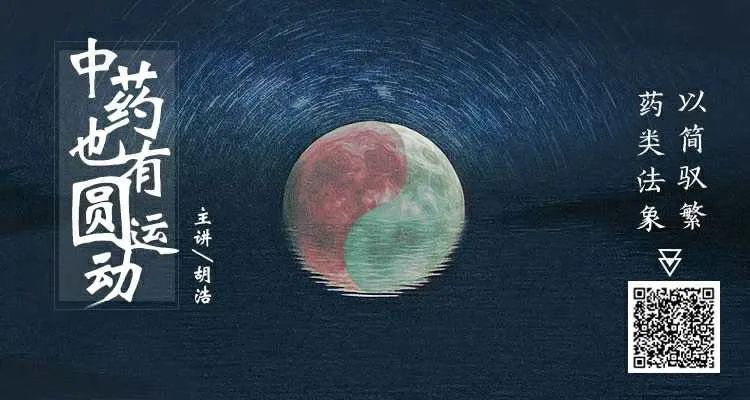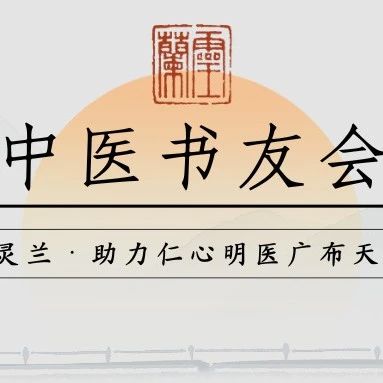
Chinese Medicine Book Club Issue 2429
Daily updates to accompany the growth of TCM practitioners
IIntroduction: ‘De Qi’ is generally considered a response that occurs during acupuncture. This article introduces two cases where patients experienced sensations similar to ‘De Qi’ after taking Chinese herbal medicine for a few minutes. Can this phenomenon suggest a commonality in the mechanisms of action between herbal medicine and acupuncture? We welcome all readers to leave comments for discussion. (Editor/Yan Qifeng)

Two Cases of ‘De Qi’ When Taking Chinese Medicine
Author/Shangmachang Hefu, Translated by Lin Dong, Edited by Cui Lan
Chinese herbal medicine and acupuncture differ significantly in diagnosis and treatment methods, making it seem forced to unify their theories. However, can the phenomenon of patients experiencing sensations similar to ‘De Qi’ after taking herbal medicine for a few minutes suggest a commonality in the mechanisms of action between herbal medicine and acupuncture?
Case 1.
A 37-year-old female chef suffered from shoulder stiffness, with migratory pain at the right lateral epicondyle of the humerus, a white and moist tongue coating, and a wiry and slippery pulse. There was tenderness in both lower abdomen (positive) and slight fullness in the chest and hypochondrium (±). The author initially diagnosed it as blood stasis and prescribed Gui Zhi Fu Ling Wan (Cinnamon Twig and Poria Pill) 2×5g, along with acupuncture. After 6 months, inflammation at the lateral epicondyle improved, but shoulder stiffness and white tongue coating worsened. The author believed this was due to liver Qi stagnation and changed the prescription to Xiao Chai Hu Tang (Minor Bupleurum Decoction) combined with Gui Zhi Fu Ling Wan.After one week of taking the new prescription, the patient began to experience sensations similar to acupuncture, such as a feeling of beans moving along both sides of the bladder meridian within a few to several minutes after taking the medicine.Since then, the stiffness and soreness in the shoulder and back have largely disappeared, the tongue coating returned to normal, and there was only slight tenderness in the lower abdomen.
Case 2.
A 38-year-old female housewife, who had experienced increased coldness throughout her body since a miscarriage 10 years ago, suffered from severe shoulder stiffness, frequent colds, and numb-like pain in the outer and posterior aspects of the right lower limb. Her menstruation was slightly delayed and scant, with mild constipation and frequent clear urination. The tongue showed a white coating (-), and the pulse was tight and thin. The abdomen was soft and sunken, with no strength throughout, and there was numbness (positive) and tenderness (-) in the lower abdomen, along with slight cyanosis in the nail beds of both hands and feet, and susceptibility to frostbite in the lower limbs. Symptoms were more pronounced on the right side. She had undergone acupuncture treatment for several months a year ago but discontinued due to ineffectiveness.
The author treated her with Dang Gui Si Ni Tang (Tangkuei Decoction for Frigid Extremities) with Wu Zhu Yu (Evodia) and ginger. After several days of treatment, the patient occasionally felt a sensation of a stick moving along the gallbladder meridian on the outer side of her right eye.The coldness in the upper body slightly improved, but the pain in the outer and posterior aspects of the right lower limb worsened. After adjusting the formula and continuing treatment for four months, the pain in the right lower limb significantly decreased, and the sensation of the stick along the gallbladder meridian disappeared. However, a similar sensation appeared from the Hegu (LI4) point on the right upper limb towards the trunk. This phenomenon lasted for about a month before dissipating.By the sixth month of treatment, the patient’s overall coldness had significantly improved, and other symptoms had mostly disappeared.
Although whether the patient’s sensations are completely identical to ‘De Qi’ is questionable, the pathways and locations of these sensations suggest a possible common mechanism.The author points out that both acupuncture and herbal medicine have effects on the autonomic nervous system and speculates that the mediators causing this similar response are the autonomic nerves.
Recommended Reading
Another Perspective on Febrile Diseases—The Forgotten Meridian Differentiation
Understanding Meridians and Acupoints from the Perspective of Rivers
|
ICopyright Notice
I Submission Email [email protected] |
The theory of medicinal phenomena in drug use, with a detailed discussion of 60 medicinal herbs. Following the classification method of “Wind rises, Heat floats, Dryness descends, Cold sinks, and Dampness transforms,” this will help you learn and understand the properties and effects of Chinese herbs from the source, forming a complete concept of the circular movement of Chinese medicine.
Clinical Practitioners—Teacher Hu Hao teaches you how to effectively use Chinese herbs through internal and external methods to flexibly address common and frequently occurring diseases in various clinical departments, minimizing sectarian disputes and significantly improving clinical efficacy. Scan to join the learning immediately!


